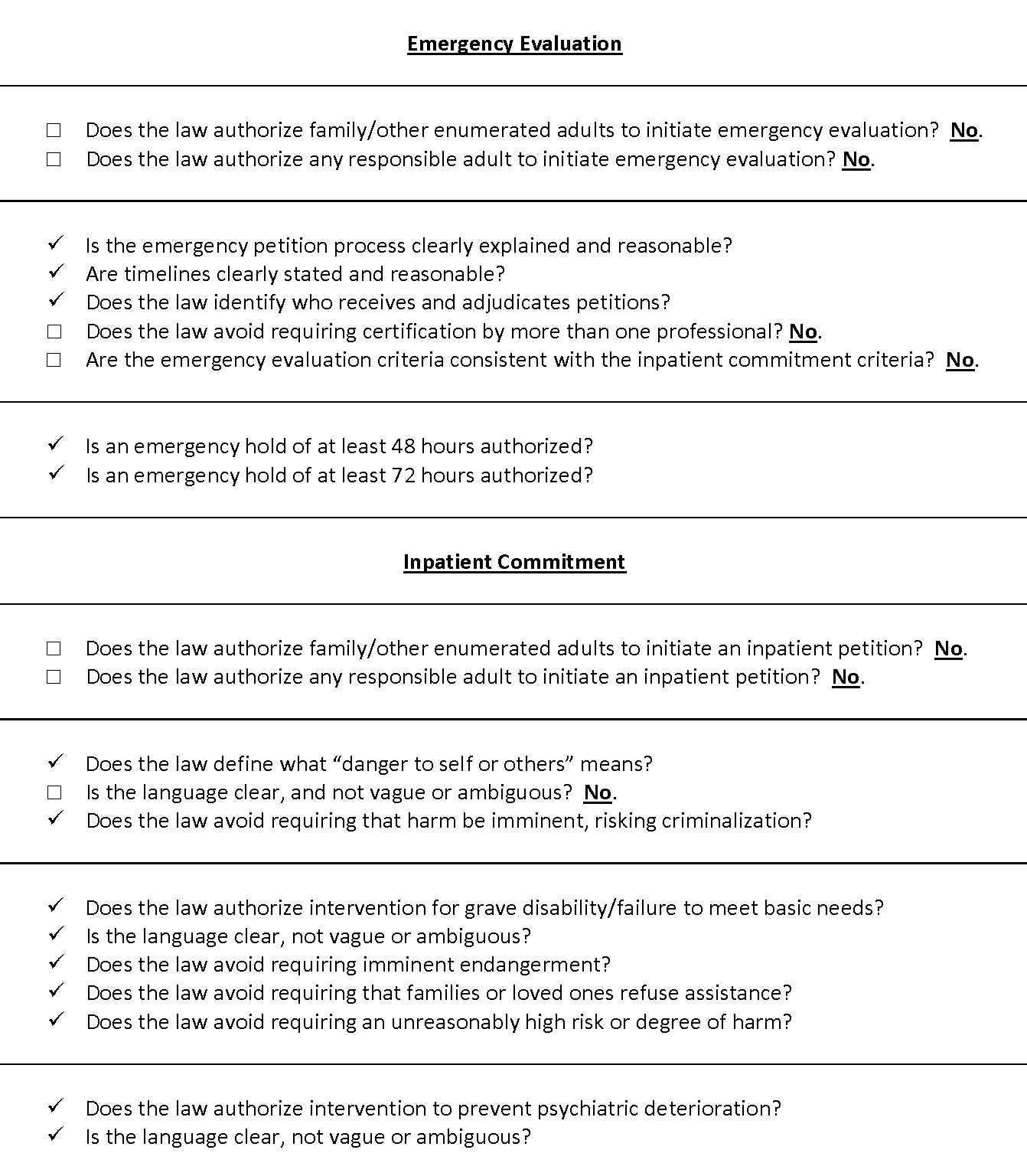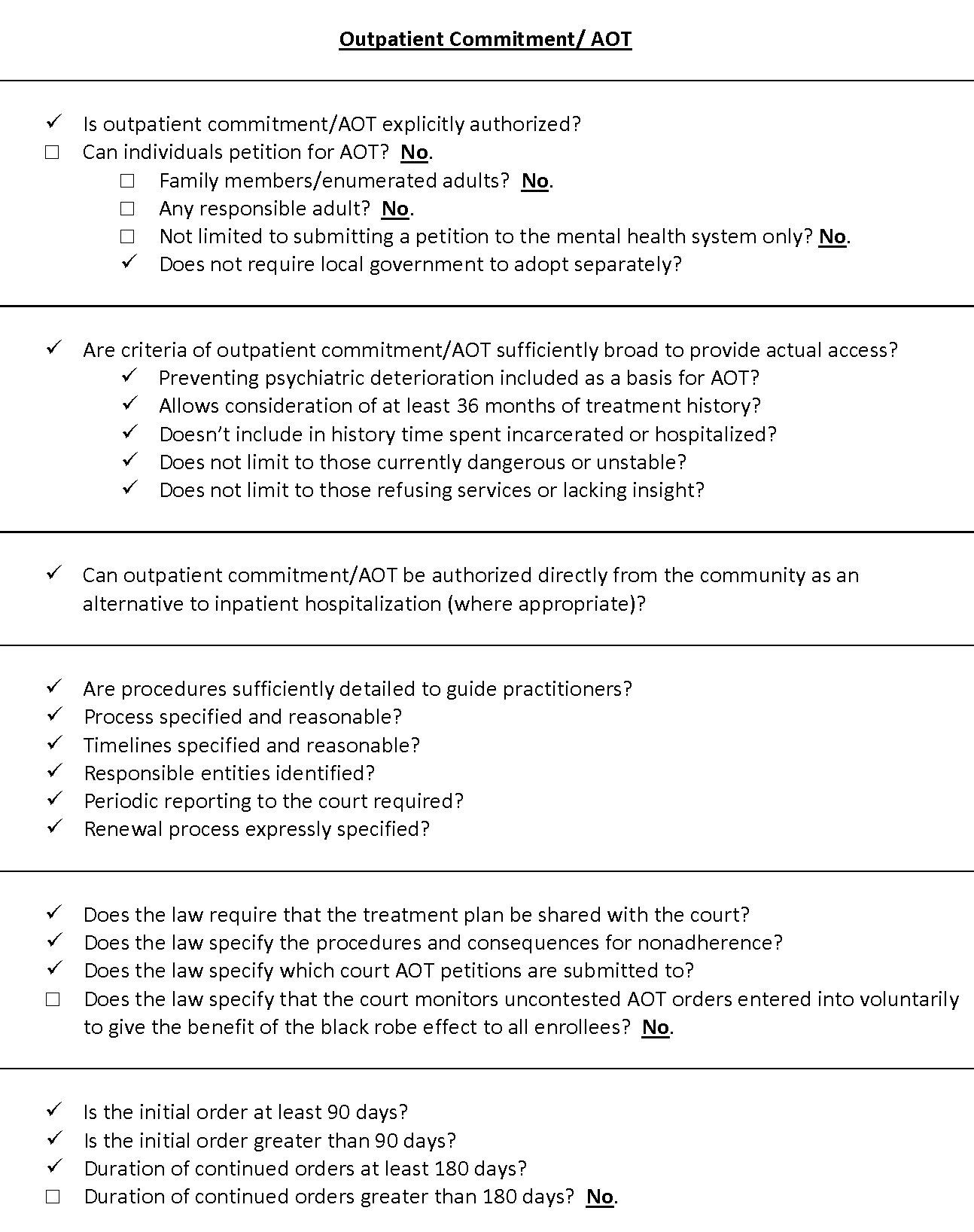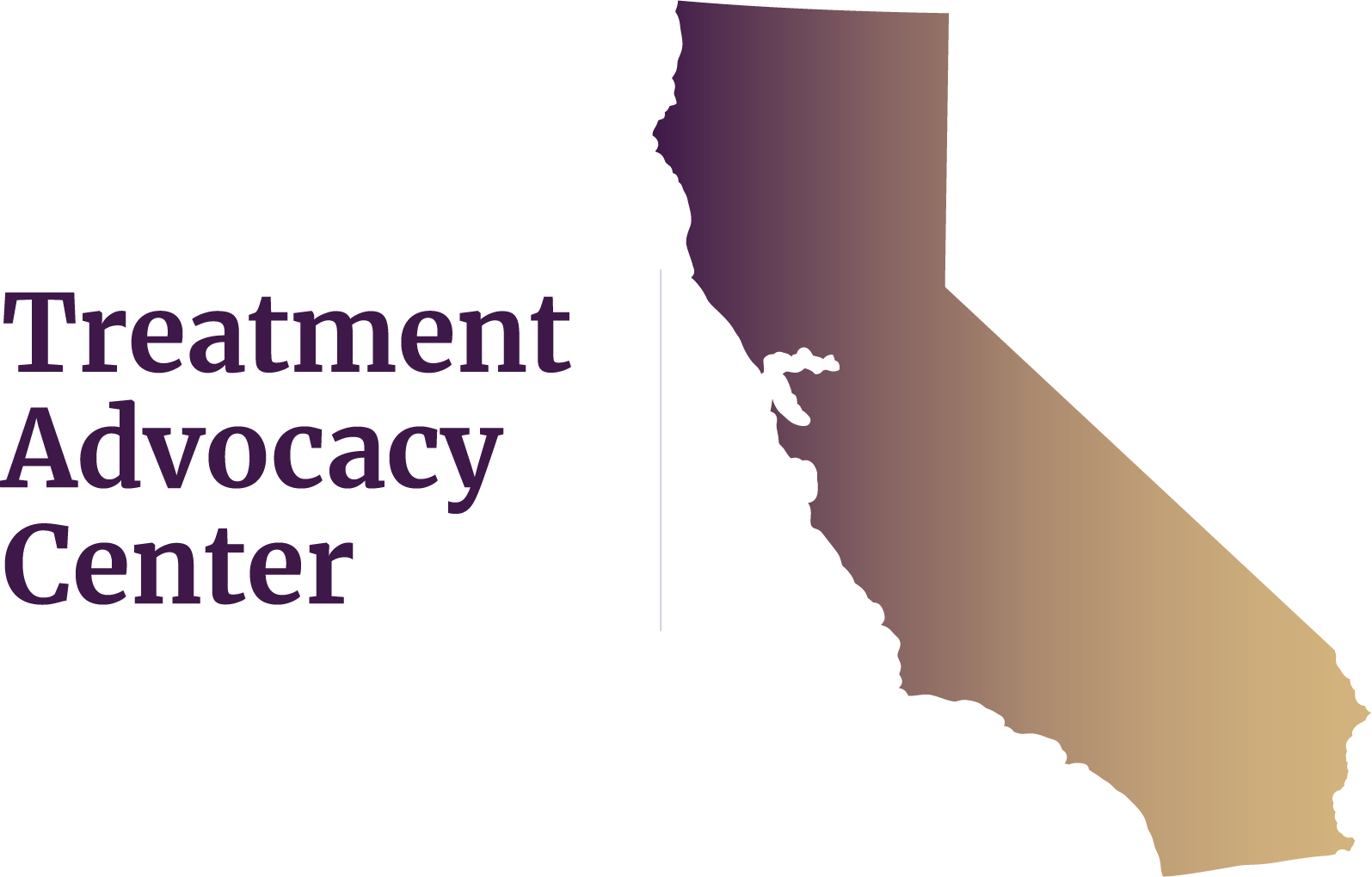Family Resources in Resources in California
- California Department of Health Care Services (dhcs.ca.gov) Resources and contacts
- CA Mental Health Movement Resource Center (emmresourcecenter.org) Collection of tools for specific communities listed by race, ethnicity, faith or LGBTQ+
- California Department of State Hospitals (dsh.ca.gov) Search treatments, population and how to send mail, add funds to an account, and contact patients by county
- NAMI California (namica.org) Support groups, training, information
- Disability Rights California (disabilityrightsca.org) Protection and advocacy for individuals with disabilities
- Projects for Assistance in Transition from Homelessness (dhcs.ca.gov) Crisis numbers, shelters, and community services by county
- California Inmate Locater (inmatelocator.cdcr.ca.gov) Search for adult inmates in the custody of the California Department of Corrections and Rehabilitation by CDCR number or name
- The State Bar of California (calbar.ca.gov) Legal assistance
How many people in California have SMI?
individuals with severe mental illness.
individuals with SMI who receive treatment in a given year.
of the adult population is estimated living with a SMI in the United States.
State psychiatric hospital beds in California
2023 total beds: 6,542
- Civil beds: 2,020
- Forensic beds: 4,522
2023 beds per 100,000 people: 16.8
Click here for more information about state psychiatric hospital beds in California.
A minimum of 50 beds per 100,000 people is considered necessary to provide minimally adequate treatment for individuals with severe mental illness. California fails to meet this minimum standard.
For Additional Information
Data is a powerful tool to advocate for change. Curious about a specific data point in your state? Reach out to us at ORPA@treatmentadvocacycenter.org
Fast Facts on SMI in California
Deinstitutionalization, outdated treatment laws, discriminatory Medicaid funding practices, and the prolonged failure by states to fund their mental health systems drive those in need of care into the criminal justice and corrections systems.
19%
35,641
6,542
5 to 1
2021 California State Mental Health Agency's expenditures
Every state receives block grant funding from the federal government to provide mental health services to their community. Below is some information about how these dollars are spent and compares to other state spending.
$7,591,908,544
25%
$11,682
1.5%
California's Treatment Laws
CALIF. WELF. & INST. CODE § 5201. Any individual may apply to the person or agency designated by the county for a petition alleging that there is in the county a person who is, as a result of mental disorder a danger to others, or to himself, or is gravely disabled, and requesting that an evaluation of the person's condition be made. CALIF. WELF. & INST. CODE § 5150(a). When a person, as a result of a mental health disorder, is a danger to others, or to themselves, or gravely disabled, a peace officer, professional person in charge of a facility designated by the county for evaluation and treatment, member of the attending staff, as defined by regulation, of a facility designated by the county for evaluation and treatment, designated members of a mobile crisis team, or professional person designated by the county may, upon probable cause, take, or cause to be taken, the person into custody for a period of up to 72 hours for assessment, evaluation, and crisis intervention, or placement for evaluation and treatment in a facility designated by the county for evaluation and treatment and approved by the State Department of Health Care Services. The 72-hour period begins at the time when the person is first detained. At a minimum, assessment, as defined in Section 5150.4, and evaluation, as defined in subdivision (a) of Section 5008, shall be conducted and provided on an ongoing basis. Crisis intervention, as defined in subdivision (e) of Section 5008, may be provided concurrently with assessment, evaluation, or any other service. (b) When determining if a person should be taken into custody pursuant to subdivision (a), the individual making that determination shall apply the provisions of Section 5150.05, and shall not be limited to consideration of the danger of imminent harm. CALIF. WELF. & INST. CODE § 5150.05 (Information about historical course of a person’s mental disorder to be considered in determining existence of probably cause to take person into custody) (a) When determining if probable cause exists to take a person into custody, or cause a person to be taken into custody, pursuant to Section 5150, any person who is authorized to take that person, or cause that person to be taken, into custody pursuant to that section shall consider available relevant information about the historical course of the person’s mental disorder if the authorized person determines that the information has a reasonable bearing on the determination as to whether the person is a danger to others, or to himself or herself, or is gravely disabled as a result of the mental disorder. (b) For purposes of this section, “information about the historical course of the person’s mental disorder” includes evidence presented by the person who has provided or is providing mental health or related support services to the person subject to a determination described in subdivision (a), evidence presented by one or more members of the family of that person, and evidence presented by the person subject to a determination described in subdivision (a) or anyone designated by that person. (c) If the probable cause in subdivision (a) is based on the statement of a person other than the one authorized to take the person into custody pursuant to Section 5150, a member of the attending staff, or a professional person, the person making the statement shall be liable in a civil action for intentionally giving any statement that he or she knows to be false.
CALIF. WELF. & INST. CODE § 5250. If a person is detained for 72 hours under the provisions of Article 1 (commencing with Section 5150), or under court order for evaluation pursuant to Article 2 (commencing with Section 5200) or Article 3 (commencing with Section 5225) and has received an evaluation, he or she may be certified for not more than 14 days of intensive treatment related to the mental health disorder or impairment by chronic alcoholism, under the following conditions: a. The professional staff of the agency or facility providing evaluation services has analyzed the person’s condition and has found the person is, as a result of a mental health disorder or impairment by chronic alcoholism, a danger to others, or to himself or herself, or gravely disabled. b. The facility providing intensive treatment is designated by the county to provide intensive treatment, and agrees to admit the person. No facility shall be designated to provide intensive treatment unless it complies with the certification review hearing required by this article. The procedures shall be described in the county Short-Doyle plan as required by Section 5651.3. c. The person has been advised of the need for, but has not been willing or able to accept, treatment on a voluntary basis. d. (1) Notwithstanding paragraph (1) of subdivision (h) of Section 5008, a person is not “gravely disabled” if that person can survive safely without involuntary detention with the help of responsible family, friends, or others who are both willing and able to help provide for the person’s basic personal needs for food, clothing, or shelter. (2) However, unless they specifically indicate in writing their willingness and ability to help, family, friends, or others shall not be considered willing or able to provide this help. (3) The purpose of this subdivision is to avoid the necessity for, and the harmful effects of, requiring family, friends, and others to publicly state, and requiring the certification review officer to publicly find, that no one is willing or able to assist a person with a mental health disorder in providing for the person’s basic needs for food, clothing, or shelter. CALIF. WELF. & INST. CODE § 5251. a. For a person to be certified under this article, a notice of certification shall be signed by two people. 1) The first person shall be the professional person, or his or her designee, in charge of the agency or facility providing evaluation services. A designee of the professional person in charge of the agency or facility shall be a physician or a licensed psychologist who has a doctoral degree in psychology and at least five years of postgraduate experience in the diagnosis and treatment of emotional and mental disorders. 2) The second person shall be a physician or psychologist who participated in the evaluation. The physician shall be, if possible, a board certified psychiatrist. The psychologist shall be licensed and have at least five years of postgraduate experience in the diagnosis and treatment of emotional and mental disorders. b. If the professional person in charge, or his or her designee, is the physician who performed the medical evaluation or a psychologist, the second person to sign may be another physician or psychologist unless one is not available, in which case a licensed clinical social worker, licensed marriage and family therapist, licensed professional clinical counselor, or registered nurse who participated in the evaluation shall sign the notice of certification. CALIF. WELF. & INST. CODE § 5008(h)(1). (h) (1) For purposes of Article 1 (commencing with Section 5150), Article 2 (commencing with Section 5200), Article 3 (commencing with Section 5225), and Article 4 (commencing with Section 5250) of Chapter 2, and for the purposes of Chapter 3 (commencing with Section 5350), “gravely disabled” means any of the following, as applicable: (A) A condition in which a person, as a result of a mental health disorder, a severe substance use disorder, or a co-occurring mental health disorder and a severe substance use disorder, is unable to provide for their basic personal needs for food, clothing, shelter, personal safety, or necessary medical care. (p) “Personal safety” means the ability of one to survive safely in the community without involuntary detention or treatment pursuant to this part.(q) “Necessary medical care” means care that a licensed health care practitioner, while operating within the scope of their practice, determines to be necessary to prevent serious deterioration of an existing physical medical condition which, if left untreated, is likely to result in serious bodily injury as defined in Section 15610.67.

CALIF. WELF. & INST. CODE § 5346(b)(1). A petition for an order authorizing assisted outpatient treatment may be filed by the county mental health director, or his or her designee, in the superior court in the county in which the person who is the subject of the petition is present or reasonably believed to be present. CALIF. WELF. & INST. CODE § 5346(b)(2). A request may be made only by any of the following persons to the county mental health department for the filing of a petition to obtain an order authorizing assisted outpatient treatment: (A) Any person 18 years of age or older with whom the person who is the subject of the petition resides. (B) Any person who is the parent, spouse, or sibling or child 18 years of age or older of the person who is the subject of the petition. (C) The director of any public or private agency, treatment facility, charitable organization, or licensed residential care facility providing mental health services to the person who is the subject of the petition in whose institution the subject of the petition resides. (D) The director of a hospital in which the person who is the subject of the petition is hospitalized. (E) A licensed mental health treatment provider who is either supervising the treatment of, or treating for a mental illness, the person who is the subject of the petition. (F) A peace officer, parole officer, or probation officer assigned to supervise the person who is the subject of the petition. (G) A judge of a superior court before whom the person who is the subject of the petition appears. CALIF. WELF. & INST. CODE § 5346(b)(3). Upon receiving a request pursuant to paragraph (2), the county behavioral health director shall conduct an investigation into the appropriateness of filing of the petition. The director shall file the petition only if the director determines that there is a reasonable likelihood that all the necessary elements to sustain the petition can be proven in a court of law by clear and convincing evidence.

Recommended updates to treatment laws
- 1
Amend Cal. Welf. & Inst. Code § 5150 to authorize citizen right of petition for at least enumerated citizens, preferably any responsible adult, for emergency evaluation.
- 2
Amend Cal. Welf. & Inst. Code § 5150 to remove requirement for certification by two professionals for emergency evaluation.
- 3
Amend Cal. Welf. & Inst. Code § 5251 to authorize citizen right of petition for at least enumerated citizens, preferably any responsible adult, for inpatient commitment.
- 4
Amend Cal. Welf. & Inst. Code § 5250 to provide adequate definition for danger to self or others.
- 5
Amend Cal. Welf. & Inst. Code § 5346(b) to authorize citizen right of petition directly to court (currently allows a petition only to the department of health) for at least enumerated citizens, preferably any responsible adult, for outpatient commitment.
- 6
Amend Cal. Welf. & Inst. Code § 5346(a)(4) to remove language excluding only periods of hospitalization or incarceration that “immediately precede” the filing of the petition.
- 7
Amend Cal. Welf. & Inst. Code § 5346(g) to extend duration of continued orders to or beyond 180 days.
- 8
Adopt express procedures for the court to monitor uncontested AOT orders entered into voluntarily to give the benefit of the black robe effect to all enrollees.
